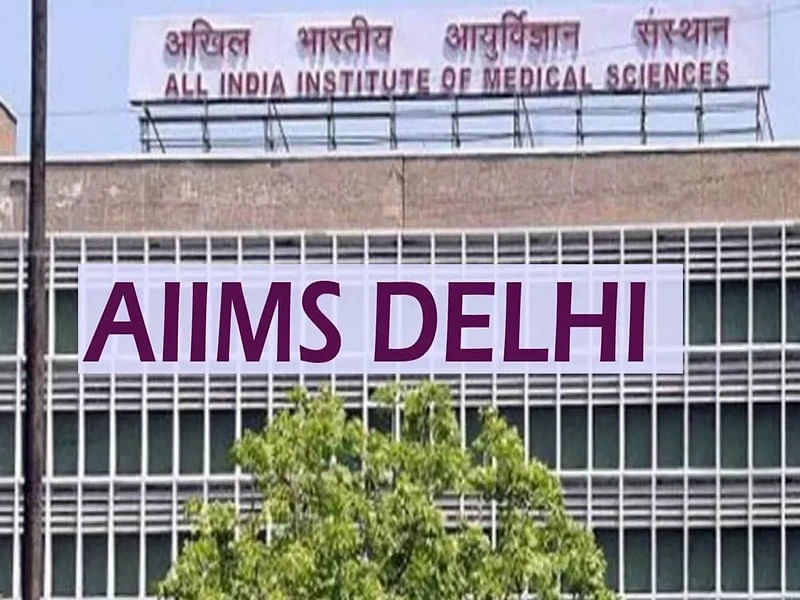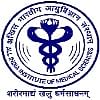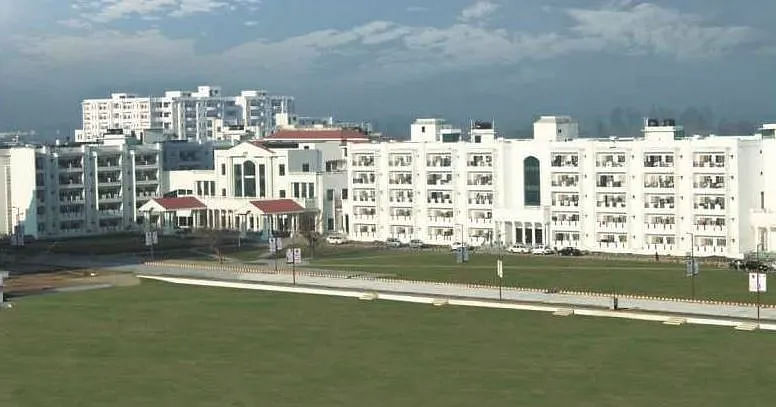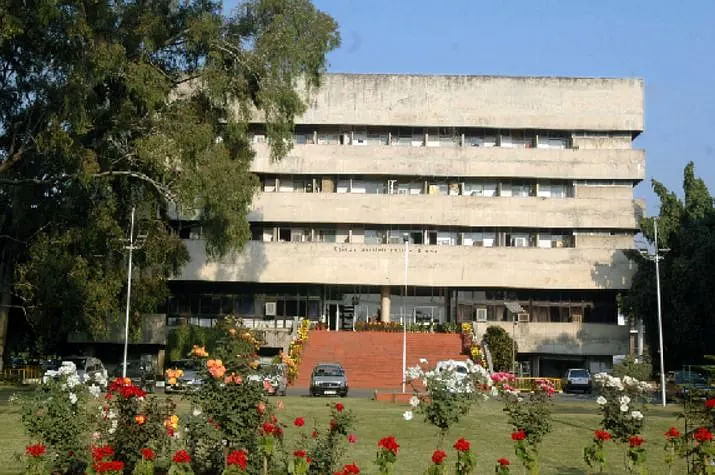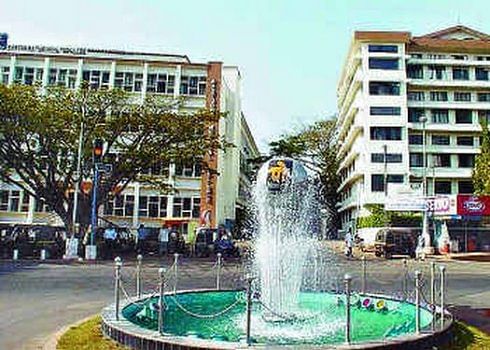M.Sc Pharmacology: Course Details, Eligibility, Admission, Fees

M.Sc Pharmacology is a two-year postgraduate degree that deals with pharmacological interactions with body cells and the creation of therapeutic responses. Essentially, the curriculum seeks to provide a foundational understanding of pharmacological concepts and practices. M.Sc Pharmacology jobs include Research Scientist, Clinical Research Associate, Professor, Pharma Consultant, etc.
M.Sc Pharmacology Course Details
| Degree | Masters |
| Full Form | Master of Science Pharmacology |
| Duration | 2 Years |
| Age | No Age Limit |
| Average Fees | ₹1 - 3 LPA |
| Average Salary | INR 3 - 5 LPA |
| Employment Roles | Research Scientist, Clinical Research Associate, Professor, Pharma Consultant |
About M.Sc Pharmacology
According to Wikipedia, “Pharmacology is a branch of medicine, biology and pharmaceutical sciences concerned with drug or medication action.” The course falls under the umbrella of M.Sc course.
The MSc Pharmacology course duration is 2 years and it covers areas such as, how to create hypotheses in a specific field of pharmacological research and how to perform tests as part of a current research project. It trains doctors who lack the necessary skills to write a proper prescription and understand its medico-legal significance.
Table of Contents
- M.Sc Pharmacology Eligibility Criteria
- M.Sc Pharmacology Admission Process
- Who Should Do An M.Sc Pharmacology?
- Types of M.Sc Pharmacology
- Distance M.Sc Pharmacology
- M.Sc Pharmacology Courses
- Popular M.Sc Pharmacology Entrance Exams
- Study M.Sc Pharmacology in India
- M.Sc Pharmacology Abroad Top Colleges
- M.Sc Pharmacology Fees Structure
- M.Sc Pharmacology Syllabus and Subjects
- Why Choose M.Sc Pharmacology?
- M.Sc Pharmacology Course Comparison
- Preparation Tips for M.Sc Pharmacology
- Salary of an M.Sc Pharmacology Graduate
- Career Options
Eligibility Criteria for M.Sc Pharmacology
In order to be admitted to the programme, students must be aware of the MSc Pharmacology eligibility criteria as well as all course specifics. To be eligible for the programme, candidates must have received at least 60% in the science stream in their graduation examinations from a recognised board. There is no age limit for applying to this course although the minimum age to apply for admission is 21 years.
How To Get Admission for M.Sc Pharmacology?
The admission procedure for students seeking an M.Sc postgraduate degree differs a little depending on the specialisation. The ability to get admission to the pharmacology programme is totally based on the candidate's ability to meet the eligibility requirements.
The qualification for candidates' M.Sc admission is based on either merit or entrance exam along with their graduation grades. The following are the processes that need to be followed in order to gain admission.
How to Apply?
Check the official website of the institution or college and finish the admissions registration process. Fill out the application form to register for the admission exams (if any). The college or university will notify the students through email, text messages, or official website regarding the further process.
Selection Process
Students are admitted to colleges based on their qualifications and merit. Students who meet the criteria and are qualified for admission to the M.Sc Pharmacology programmes are placed on a merit list by the college.
Who Should Pursue an M.Sc Pharmacology?
The pharmaceutical sector in India is in desperate need of experienced personnel to assist and address its diverse difficulties. A candidate with an M.Sc Medical Pharmacology degree is in great demand since the healthcare industry requires a technically and academically competent workforce, and only a small number of specialists are accessible for research and development. As a consequence, a candidate with a great interest in this sector and a desire to benefit from the booming pharmaceutical industry's rising potential is an excellent fit for this course.
When to do M.Sc Pharmacology?
Typically, it makes sense for M.Sc Pharmacology aspirants to apply for the course immediately after completing graduation. Students from only science stream subjects can apply for an M.Sc Pharmacology course.
Types of M.Sc Pharmacology
M.Sc courses are in high demand in India. Students can choose from a number of courses. One of these courses is an M.Sc Pharmacology programme. It is available as a full-time M.Sc Pharmacology, part-time M.Sc Pharmacology, and distance M.Sc Pharmacology programme.
Full-Time M.Sc Pharmacology
This is a full-fledged on-campus degree programme that equips students with all of the knowledge and abilities required for pharmacology. Full-time M.Sc Pharmacology programmes are available at a number of universities across India.
Part-Time M.Sc Pharmacology
M.Sc Pharmacology is a program that undergoes continuous assessment and follows a practical approach. It is thus not offered as a part-time educational course.
Distance M.Sc Pharmacology
An M.Sc Pharmacology distance learning in India is not offered right now but it is offered by a few universities abroad for aspirants who wish to learn about pharmacology.
Popular Entrance Exams for M.Sc Pharmacology
Students must take either pen-and-paper or online entrance exams offered by national or state-level testing authorities, and if they pass, they are invited to the counselling process or Personal Interview Round. Some of the most common M.Sc entry examinations are as follows:
A Quick Glance at the M.Sc Pharmacology Entrance Exams
Entrance examinations are very important in the admissions process since they determine who gets in. As a result, it is critical to comprehend the style and structure of the entrance exam. While studying for the M.Sc Pharmacology entrance exams, keep the following points in mind:
- The entrance exams are conducted offline as well as online mode.
- The entrance exams are conducted on the national level as well as the state level depending on the university the aspirant wishes to apply to.
- The duration of the exams is 3 hours.
- MCQ questions are asked with negative marking for wrong answers.
- The entrance exams are conducted only once a year.
Study M.Sc Pharmacology in India
India is home to some of the best science universities in the world. Aspirants have a variety of alternatives based on their graduation grades and admission exam results.
Top 10 M.Sc Pharmacology Colleges in India
Below is the list of the 10 best M.Sc Pharmacology Colleges in India:
| Sl.No. | Name of the College |
| 1 | MSU, Baroda |
| 2 | Annamalai University, Cuddalore |
| 3 | JNU, Jaipur |
| 4 | Chandigarh University |
| 5 | SGT University, Gurgaon |
| 6 | Gujarat University, Ahmedabad |
| 7 | Era University, Lucknow |
| 8 | AIIMS, Rishikesh |
| 9 | Geetanjali University, Udaipur |
| 10 | JSS Medical College, Mysore |
Top M.Sc Pharmacology Colleges in New Delhi
India’s capital city is home to some of the best institutions for M.Sc Pharmacology. Check the table below for the top M.Sc Pharmacology colleges in Delhi:
| Sl.No | Institution |
| 1 | Delhi University |
| 2 | KR Mangalam University |
| 3 | Sharda University |
| 4 | SGT University |
Top M.Sc Pharmacology Colleges in Pune
Pune also has some of the best institutions for M.Sc Pharmacology in India. Check the table below for the top M.Sc Pharmacology colleges in Pune:
| Sl.No. | Institution |
| 1 | Bharati Vidyapeeth |
| 2 | Fergusson College |
| 3 | UNIPune |
| 4 | D.Y. Patil College |
Top M.Sc Pharmacology Colleges in Bangalore
The capital city of Karnataka is renowned around the country for colleges offering top M.Sc Pharmacology programmes. Check the table below for the best M.Sc Pharmacology colleges in Bangalore:
| Sl.No | Institution |
| 1 | IISc Bangalore |
| 2 | Mount Carmel College |
| 3 | Jain University |
| 4 | The Oxford College of Science |
| 5 | Christ University |
Top M.Sc Pharmacology Colleges in Kolkata
West Bengal’s capital city, Kolkata, has some of the best colleges for M.Sc Pharmacology courses in India. Check the table below for the best M.Sc Pharmacology colleges in Kolkata:
| Sl.No | Institution |
| 1 | St. Xavier’s College |
| 2 | Ramakrishna Mission Residential College |
| 3 | Bethune College |
| 4 | Lady Brabourne College |
| 5 | Ramakrishna Mission Vivekananda Centenary College |
Top M.Sc Pharmacology Colleges in Hyderabad
The Telangana state capital has some premier institutions in the country for M.Sc Pharmacology courses in India. Check the table below for the top M.Sc Pharmacology colleges in Hyderabad:
| Sl.No. | Institution |
| 1 | NIPER |
| 2 | MANUU |
| 3 | University of Hyderabad |
| 4 | Osmania University |
| 5 | M.N.R Group Of Institutions |
Top M.Sc Pharmacology Government Colleges
There are several top Government Colleges offering quality M.Sc Pharmacology programmes across the country. Check the table below for the top M.Sc Pharmacology government colleges in India:
| Sl.No | Institution |
| 1 | AIIMS, New Delhi |
| 2 | Andhra University |
| 3 | PGIMER, Chandigarh |
| 4 | University of Hyderabad |
| 5 | MSU, Baroda |
Top M.Sc Pharmacology Private Colleges
India has seen significant growth in the number of quality private colleges for MSc Pharmacology in India that offer some of the best programmes in the country. Check the table below for the top M.Sc Pharmacology private colleges in India:
| Sl.No | Institution |
| 1 | St. Xavier’s College, Kolkata |
| 2 | Bharati Vidyapeeth, Pune |
| 3 | Jamia Hamdard University, New Delhi |
| 4 | Mount Carmel College, Bangalore |
| 5 | M.N.R. Group of Institutions, Hyderabad |
Study M.Sc Pharmacology Abroad
Students can take an M.Sc Pharmacology programme overseas if they can afford it. An M.Sc Pharmacology programme abroad might last 3 to 4 years, depending on the type of degree, college, and location.
Access to some of the best resources, facilities, and faculty, as well as worldwide exposure in terms of subject matter and other cultures, are some of the advantages of doing an M.Sc Pharmacology degree abroad. Some of the finest M.Sc Pharmacology colleges in the globe, along with their costs, are listed below:
Top M.Sc Pharmacology Colleges Abroad
The table below contains the list of some of the best colleges abroad for M.Sc Pharmacology:
| Institution | Fees |
| Arizona State University | USD 31200 |
| Ohio Northern University | USD 40800 |
| University of South Carolina | USD 33235 |
| University of Tasmania | USD 25000 |
| RMIT University | USD 29500 |
| Massachusetts College of Pharmacy and Health Sciences | USD 34760 |
| Mount Aloysius College | USD 23555 |
| University of Portsmouth | GBP 22,880 |
| London Metropolitan University | GBP 20,501 |
Top M.Sc Pharmacology Colleges in the USA
The United States has some of the greatest institutions and colleges in the world, including world-class M.Sc Pharmacology programmes. The best MSc Pharmacology colleges in the USA are shown in the table below:
| Sl.No | Institution |
| 1 | Arizona State University |
| 2 | Ohio Northern University |
| 3 | University of South Carolina |
| 4 | New York University |
| 5 | Massachusetts College of Pharmacy and Health Sciences |
Top M.Sc Pharmacology Colleges in the UK
The United Kingdom is one of the most popular countries in the world for academics. They provide world-class facilities that bring out the best in the students. The table below shows the top colleges for M.Sc Pharmacology in the UK:
| Sl.No | Institution |
| 1 | University of Oxford |
| 2 | University of Portsmouth |
| 3 | London Metropolitan University |
| 4 | Ulster University |
Top M.Sc Pharmacology Colleges in Canada
Canada is one of the countries which is preferred by students for pursuing higher education outside India. Canada offers some of the best colleges for studying MSc Pharmacology outside our country. Following are the colleges for MSc Pharmacology in Canada:
| Sl.No | Institution |
| 1 | University of Toronto |
| 2 | University of Montreal |
| 3 | Sheridan College |
| 4 | Red Deer Polytechnic |
Top M.Sc Pharmacology Colleges in Australia
Australia is known in the world for providing quality education through its unique curriculum and course structures. It is home to some of the top MSc Pharmacology colleges in the world. The list of top M.Sc Pharmacology colleges in Australia is as follows:
| Sl.No | Institution |
| 1 | University of Melbourne |
| 2 | University of Tasmania |
| 3 | RMIT University |
| 4 | University of Sydney |
| 5 | Victoria University |
Fee Structure for M.Sc Pharmacology
The MSc Pharmacology fees are not set in stone and are influenced by a number of factors. M.Sc Pharmacology fees are influenced by a variety of factors including location, faculty, demand, infrastructure, and student facilities. The average fee of an M.Sc Pharmacology programme in India is between INR 15,000 and 3 LPA.
| Sl.No. | Name of the College | Total Fee Structure |
| 1. | MSU, Baroda | INR 15,000 PA |
| 2. | Chandigarh University | INR 85,000 PA |
| 3. | Sharda University | INR 1.5 LPA |
| 4. | Gujarat University | INR 50,000 PA |
Syllabus and Subjects for M.Sc Pharmacology
Some of the most popular M.Sc Pharmacology programmes have a nearly identical syllabus. Most colleges across the country follow the core of the MSc Pharmacology syllabus, with a few minor deviations. The following are some of the subjects that are a part of the MSc Pharmacology course details:
- Toxicology
- Pharmacokinetics
- Molecular biology
- Drug regulation
- Isolation of Compounds from Herbal Sources
- Therapeutic Monitoring
- Systemic pharmacology
Read More: M.Sc Pharmacology Syllabus and Subjects
Why Choose M.Sc Pharmacology?
Before enrolling in the MSc Pharmacology course, students should review the course specifications to ensure that they are informed of the course they are enrolled in. Students frequently inquire, "What is M.Sc Pharmacology?" and "Why M.Sc Pharmacology?" We can break down the answers to these questions into three short questions to make them easier to understand:
What is M.Sc Pharmacology All About?
Students in the M.Sc Pharmacology programmes learn how to conduct successful pharmacological research and even test concepts in specific areas through logical and effective research. It comprises teaching aspiring pharmacists how to write prescriptions appropriately and the importance of doing so from a medico-legal aspect. It also gives students the tools they need to achieve academically and become exceptional researchers and scholars. After successfully completing the course, candidates will have access to easily available employment.
What Does an M.Sc Pharmacology Graduate Do?
After completing an M.Sc Pharmacology, graduates have a variety of options for their future. As the healthcare business demands a technically and academically strong workforce, only a few professionals are available for research and development. Graduates have a wide range of job opportunities, ranging from jobs such as Supply Manager, Pharma Researcher, Pharmacologist, Drug Regulatory Officer, and Retail salesperson, and more alternatives are available to such graduates.
Drug regulatory officer: Drug Regulatory Officers serve as a liaison between businesses and government agencies, ensuring that products are created and sold in accordance with applicable laws. Cosmetics, pharmaceuticals, and veterinary medications are all regulated to ensure that they fulfil legal standards.
Reasons Why M.Sc Pharmacology Can Fetch You a Rewarding Career?
The M.Sc Pharmacology programme provides a stimulating and engaging educational route. The intrinsic worth of an M.Sc Pharmacology programme may be judged by the fact that it offers employment choices unlike any other. As a result, the field of M.Sc Pharmacology study is constantly expanding and engaging.
Diversity in Job roles: Graduates of this programme will have a wide range of employment options. Because the area is still developing and few people are aware of the opportunities available in the pharma domain, students can pursue a wide range of careers in their professions.
Read More: M.Sc Pharmacology Jobs & Scope
M.Sc Pharmacology Course Comparison
M.Sc Pharmacology vs M.Sc Clinical Research
The table below showcases the differences between M.Sc Pharmacology and M.Sc Clinical Research:
| Course | M.Sc Pharmacology | M.Sc Clinical Research |
| Full-Form | Master of Science in Pharmacology | Master of Science in Clinical Research |
| Stream | Science | Science |
| Course Duration | 2 years | 2 years |
| Eligibility | Graduation from a recognized board with a minimum of 60% marks | Graduation from a recognized board with a minimum of 50% marks |
| Entrance Exams | RUHS Pharmacy Admission Test, NIPER JEE, KCET, JELET, GPAT | MET, CUCET, MGU CAT, IUET |
| Top Colleges | MSU,Annamalai University,Jaipur National University | Amity University, Indus University, Sushant University |
| Fees | INR 15000 to 3.5 LPA | INR 5000 to 2 LPA |
Read More: M.Sc Clinical Research
Preparation Tips for M.Sc Pharmacology
Mentioned below are some important tips that the aspirants can follow for pursuing the M.Sc Pharmacology course:
Subject Knowledge: Examine the entrance exam syllabus thoroughly and stick to the timeline to complete the entire syllabus on time. Aside from that, candidates who concentrated on chemistry or biotechnology throughout their undergraduate degrees should have a basic understanding.
Books and articles to read: References to research books and articles, as well as reading the textbook, are required for the M.Sc Pharmacology course on practical subjects.
Making Improvements: In order to succeed in this course, students must extensively practice the concepts during the exam period. One should make a list of weaknesses that are needed to be worked on and make sure that these weaknesses are converted into strong points by purposeful hard work.
Scope For Higher Education
Students can pursue many different courses after M.Sc Pharmacology. There are also many higher study options available for graduate students after a M.Sc Pharmacology degree, which can help them better understand the subject domain.
Also, the students can pursue a career in research if they are interested in it. They also can get hired in Hospitals, Research Colleges/ Universities, Defence Services, etc.
The other higher education options that the M.Sc Pharmacology graduates can opt for are:
Salary of an M.Sc Pharmacology Graduate
As only a few people are aware of this degree, M.Sc graduates with a specialisation in Pharmacology are hard to come by. As a result, there are numerous opportunities open to graduates in diverse positions and responsibilities.
Graduates of the M.Sc Pharmacology programmes are regarded as qualified specialists in the pharmaceutical industry. On average, an M.Sc Pharmacology salary varies from INR 3.5-6 LPA. (Source: Glassdoor)
Read More: M.Sc Pharmacology Salary
Career Options After M.Sc Pharmacology Course
The information learned throughout the pharmacology degree course may be applied in the pharma and medical industries to give a real-time solution to consumer and organisational difficulties. This stream is critical in such a firm and can help achieve the level of quality that might transform the pharmaceutical industry.
The graduates may be able to find job roles such as:
- Supply manager
- Pharma Researcher
- Pharmacologist
- Drug Regulatory Officer
- Retail salesperson
Skills That Make You The Best M.Sc Pharmacology Graduate
M.Sc Pharmacology graduates must have a broad understanding of pharmacology to be successful in their careers. These aren't always skills that can be taught in a classroom. These are skills that can only be learned via practice. As a result, students should make every effort to expand their horizons and get as much experience as possible. These skills include:
- A logical and self-contained mentality
- Good analytical abilities
- Exceptional accuracy and meticulous attention to detail
- Research Skills
- Problem Solving Skills
- Decision Making Skills







